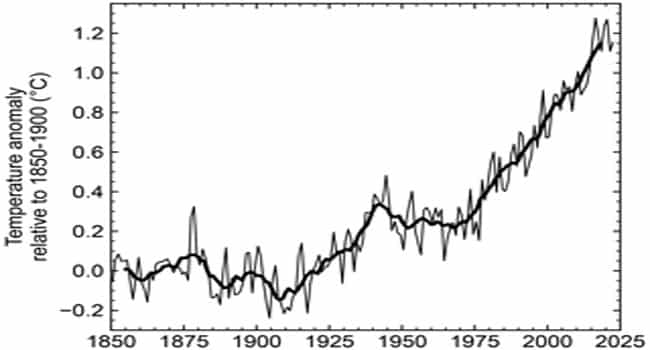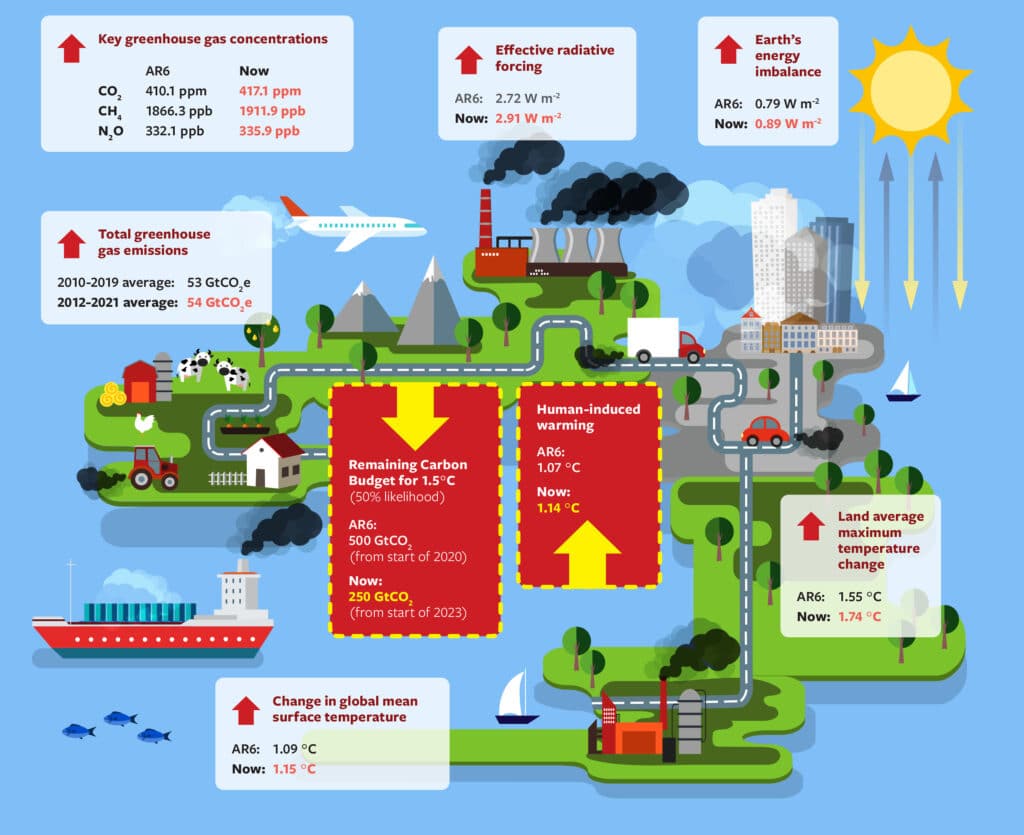
Annual (thin line) and decadal (thick line) change in mean global surface temperature, compared to 1850-1900 average. Source: Indicators of Global Climate Change 2022.
Human-caused global warming has continued to increase at an “unprecedented rate” since the last report from the Intergovernmental Panel on Climate Change (IPCC).
That’s a key finding of the Indicators of Global Climate Change Project, which aims to fill the “information gap,” between IPCC reports, which are published every six years or so and are often criticized for being out of date.
Initiated by climate scientists at the University of Leeds, the project will publish “up-to-date estimates of policy-relevant global climate indicators that follow the causal chain from emissions to warming, including greenhouse gas emissions, human induced warming and the remaining global carbon budget.” For consistency, the project uses the same indicators and definitions as the IPCC.
Some fifty climate scientists from around the world contributed to the project’s first “annual update of large-scale indicators of the state of the climate system and human influence,” published on June 8 in the peer-reviewed journal Earth System Science Data.
Among the updated indicators:
- Between 2013 and 2022, global warming averaged of 1.14°C above pre-industrial levels. This is up from 1.07°C between 2010 and 2019.
- Human-induced warming is now increasing by more than 0.2°C per decade.
- Increased temperatures are driving “an intensification of many weather and climate extremes, particularly more frequent and more intense hot extremes, and heavy precipitation across most regions of the world.”
- Between 2012 and 2021, greenhouse gas emissions were at an all-time high, adding the equivalent 54 billion metric tonnes of carbon dioxide into the atmosphere every year. That’s about 1,700 tonnes every second.
- The Earth’s “carbon budget” — the emissions that can be released to have a 50% chance of keeping global temperature rise under 1.5°C — is shrinking fast. In 2020, the IPCC calculated the remaining budget at 500 gigatons of carbon dioxide and other greenhouse gases. It is now about 250 gigatons.
- Improving the odds to 66% or 80% would cut the budget to 150 gigatons and 100 gigatons, which at present rates will be exhausted in less than three years.

Key Indicators: Changes since the IPCC’s Sixth Assessment Report (AR6) was published in 2021 and 2022. Source: Indicators of Global Climate Change 2022. (Click image to enlarge)


